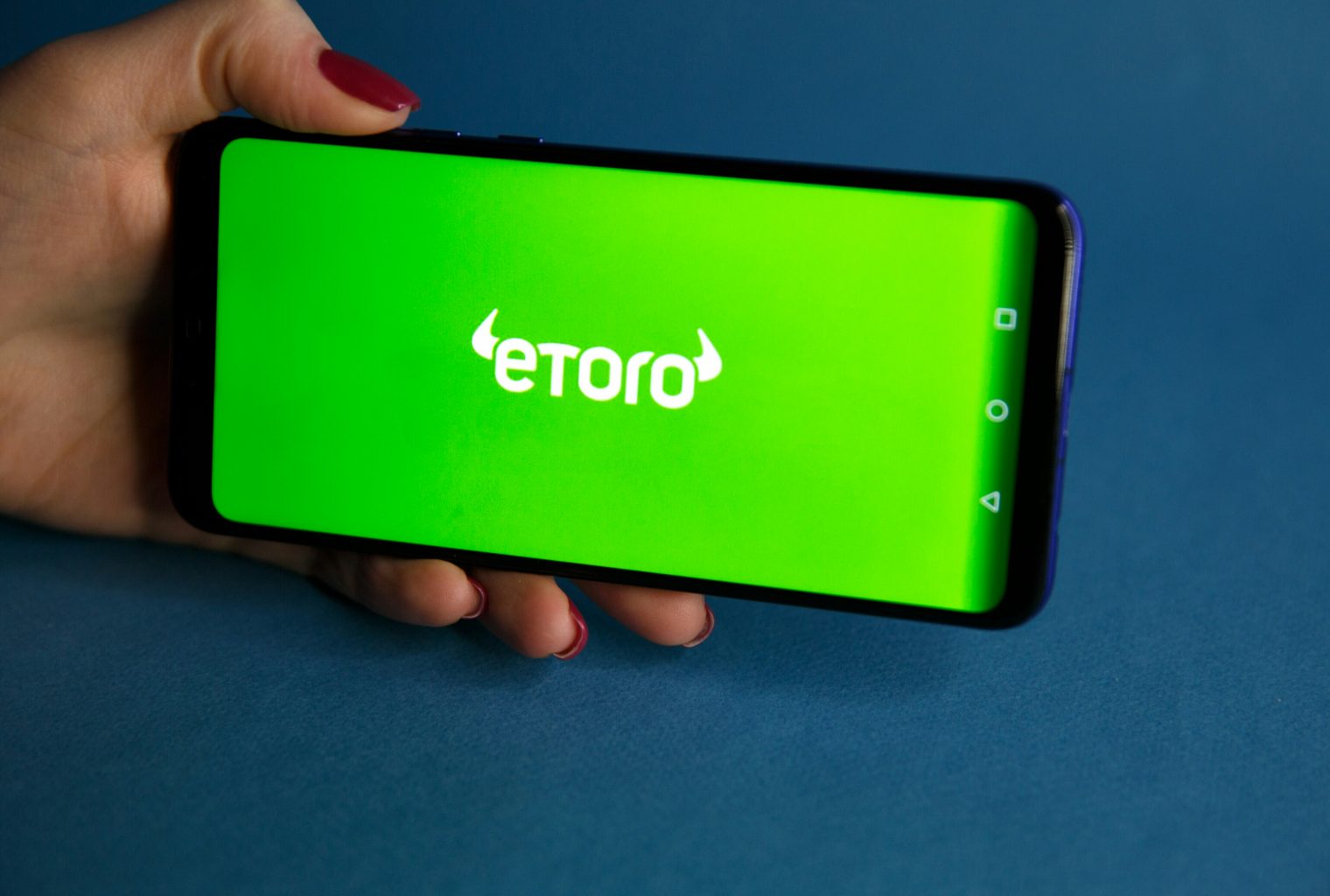eToro Targets $4B Valuation With Planned Nasdaq Debut
07.05.2025 17:00 2 min. read Alexander Stefanov
Israeli trading platform eToro is preparing to go public in the U.S., aiming for a valuation of up to $4 billion as it moves to list shares on the Nasdaq under the ticker “ETOR.”
The company hopes to raise $500 million through the sale of 10 million shares priced between $46 and $50 each, according to a May 5 filing.
Half of the shares will be issued by eToro itself, while the remainder will come from early backers, including co-founders Yoni and Ronen Assia and firms like Spark Capital and BRM Group. Some BlackRock-managed accounts have already shown interest in buying as much as $100 million worth of stock.
eToro, which offers both stock and crypto trading with a focus on retail investors, is positioning itself as a rival to Robinhood. Though Robinhood saw a drop in crypto trading volumes earlier this year, its stock is up nearly 30% year-to-date.
The company disclosed that crypto-related revenue reached $12.1 billion in 2024, a sharp increase from $3.4 billion the year before. Crypto trading currently makes up over a third of eToro’s commission-based income, although that’s slightly down from the previous year.
Still, regulatory and reputational hurdles remain. eToro’s IPO documents caution that unfavorable media coverage or steep user losses could dent demand. The platform also flagged compliance costs tied to new crypto laws in the U.S. and Europe, particularly the EU’s MiCA framework, which is expected to impact operational expenses long term.
-
1
Polygon Breaks from Decentralization as Sandeep Nailwal Assumes Full Control
11.06.2025 20:00 2 min. read -
2
Nvidia CEO Urges UK to Invest in AI Infrastructure or Risk Falling Behind
10.06.2025 9:00 1 min. read -
3
KuCoin Plants Its Flag in Bangkok With a Licensed Thai Exchange
14.06.2025 13:00 1 min. read -
4
Why Gold Could Be the Smart Play Amidst US Debt Surge
11.06.2025 11:00 1 min. read -
5
Warren Buffett Narrows His Bets as He Prepares to Step Down
14.06.2025 16:00 2 min. read
What Brian Armstrong’s New Stats Reveal About Institutional Crypto Growth
Coinbase CEO Brian Armstrong has spotlighted a significant acceleration in institutional crypto adoption, driven largely by the surging popularity of exchange-traded funds and increased use of Coinbase Prime among major corporations.
Whales Buy the Dip as Retail Panics: This Week in Crypto
The latest market turbulence, fueled by geopolitical tensions and investor fear, offered a textbook case of how sentiment swings and whale behavior shape crypto price action.
What Will Happen With the Stock Market if Trump Reshapes the Fed?
Jefferies chief market strategist David Zervos believes an upcoming power shift at the Federal Reserve could benefit U.S. equity markets.
U.S. Bank Advises Clients to Drop These Cryptocurrencies
Anchorage Digital, a federally chartered crypto custody bank, is urging its institutional clients to move away from major stablecoins like USDC, Agora USD (AUSD), and Usual USD (USD0), recommending instead a shift to the Global Dollar (USDG) — a stablecoin issued by Paxos and backed by a consortium that includes Anchorage itself.
-
1
Polygon Breaks from Decentralization as Sandeep Nailwal Assumes Full Control
11.06.2025 20:00 2 min. read -
2
Nvidia CEO Urges UK to Invest in AI Infrastructure or Risk Falling Behind
10.06.2025 9:00 1 min. read -
3
KuCoin Plants Its Flag in Bangkok With a Licensed Thai Exchange
14.06.2025 13:00 1 min. read -
4
Why Gold Could Be the Smart Play Amidst US Debt Surge
11.06.2025 11:00 1 min. read -
5
Warren Buffett Narrows His Bets as He Prepares to Step Down
14.06.2025 16:00 2 min. read


